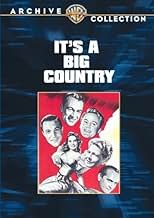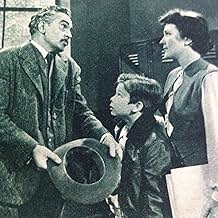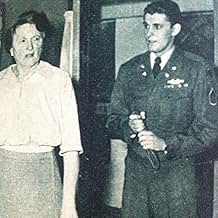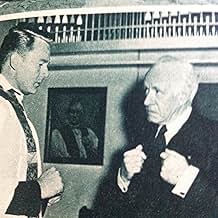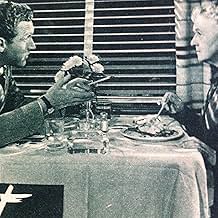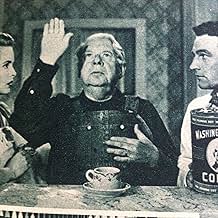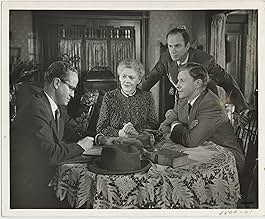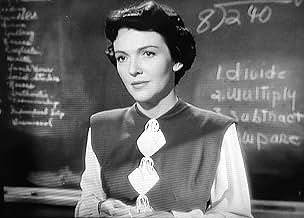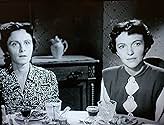Comprised of eight unrelated episodes of inconsistent quality, this anthology piece of American propaganda features some of MGM Studios' best directors, screenwriters and actors; it is narra... Read allComprised of eight unrelated episodes of inconsistent quality, this anthology piece of American propaganda features some of MGM Studios' best directors, screenwriters and actors; it is narrated by Louis Calhern.Comprised of eight unrelated episodes of inconsistent quality, this anthology piece of American propaganda features some of MGM Studios' best directors, screenwriters and actors; it is narrated by Louis Calhern.
- Miss Coleman
- (as Nancy Davis)
- Joey Esposito
- (as Bobby Hyatt)
Featured reviews
Episodic by nature and all the vignettes have their charm but the first three are really the best.
William Powell and James Whitmore breeze their way through a lively discussion of the ever evolving nature of the country. Their reactions to each other are what makes the skit.
Next up is a little story about not being lost in the crowd made charming by Ethel Barrymore's gentle performance.
The next segment is a tribute to notable African Americans which is nice in and of itself but that's also why it's a bit problematic. Considering the time it was made the isolated state of the short would have made it easy to snip out in the South. Of course the same could be said for any of the stories but since their are not people of color in any of the other segments it's rather obvious that was the intention at the time. Still it's a nice opportunity to see the significant Americans it spotlights.
The other sections all showing various slices of life, aside from Gary Cooper's star bit simply representing Texas, are pleasant but are on the sticky side of sweet.
This film feels like a moving representation of Norman Rockwell paintings, displaying a homespun, good-natured respect for traditions and the values that drove the United States to become successful. From the viewpoint of the 21st century, some of these values seem naïve. In our post-Watergate world, fewer Americans see government authority and other established authorities as innately benign. But it is simplistically easy to view this film as merely propaganda or naïve.
Most of the episodes in this collection of vignettes champion values that were and are important to embrace: Racial understanding. The American melting pot. The Constitutional freedoms. But reading some reviews of the film, it is clear that some viewers also see the film as a documentary on American exceptionalism. And it's a subtext that cannot be ignored. Various individuals have always promoted the idea that America is the greatest country that ever existed--teachers, politicians, the military, the clergy.
The thing that is exceptional and unique about the U.S. is its Constitution. Sometimes that message is lost in the nationalistic clamor.
The film has an exceptional cast (Frederic March continues to amaze), exceptional writing that stirs the heart and summons tears, and solid production values. For those of any age, it can serve as a marker designating the state of the country circa 1950. So many complex factors have affected the evolution of the U.S. from what it was to what it is now. I like being reminded of the optimism of that time, however naïve. And it can remind us of the values we need to preserve and the viewpoints we have thankfully left behind.
Directed by seven different directors and featuring an ensemble cast of both MGM contract actors and non contract players, this film portrays various stories and characters, each representing different aspects of American life as it existed in the 1950s. I won't go over every segment, but I will mention some that stood out and why.
In the segment concerning the Hungarian immigrant (S. Z. Sakall) who does not want his daughter to marry a Greek because Hungarians hate Greeks - Is that even true?
The third segment is different from the rest as it is a mini documentary concerning successful and prominent Black Americans. This is actually the best part of the film as it was very informative and progressive for its time.
The fifth segment about a Jewish soldier who has been to Korea visiting the mother of a dead comrade in arms seems like it might have originally been written concerning WWII soldiers.
The sixth segment has Gary Cooper as a Texan disputing Texas stereotypes by dispensing even more Texas stereotypes. Qualifications for this judgment - I am a Texan.
The seventh segment also seems like it might have been written for WWII. Van Johnson plays the minister in a church that the president attends when in Washington, and as a result he writes a bunch of dull wonky sermons about public policy that only the president could appreciate. The reason that I think that it was written for WWII is that Lewis Stone talks about how the president was missing if traveling or relaxing at Hyde Park, which is where Roosevelt lived. Also, at the end, when the president is going to come see Johnson's character, there is the distinct sound of crutches.
I liked the introductory segment the best because it had William Powell in it AND it had Powell, as a passenger on a train who puts an annoying know it all in his place. Powell is actually the reason I decided to watch this in the first place.
I would say the film as a whole is a tough slog unless you look at it in its historical context.
Wellmann and co tell us that America is a big country ,with big differences but where everybody has his place in the sun: in the "celebrities" segment,there are plenty of black artists such as Armstrong ,but the civil rights were ignored in 1949.
What saves this naive film containing more finer feelings than a Capra movie,is some kind of humor .Take the first scene on a train and the last sentence of the baffled traveler or the Hungarian daddy who does not want his daughters to marry a Greek,cause we are "enemies" .How great the melting pot is!And so are Gene Kelly and Janet Leigh.
Some stars only appear a few minutes:Gary Cooper tells us what a wonderful state "Lone Star" Texas is where oil spurts out everywhere under your feet;Ethel Barrymore plays a delightful old lady who is cross cause she was not counted when they took a census of the population.
The last sketch ,about glasses ,was perhaps not a very good choice to conclude the movie.
It was,is and will always be a big country.
I had thought that the "episodic" film format was an invention of the 1980's art film. "It's a Big Country" killed that myth by presenting a film about the USA that is built on eight different episodes. The episodes are drawn together by a common narration, their focus on different ways of looking at the USA, and the introductory episode which lays out the concept for the film.
In the opening segment, James Whitmore rides a commuter train and tells another rider, "I love this country?" The other rider's response catches Whitmore off guard. "Which country?" He then points out that the USA is many countries -- political, military, religious, industrious, urban, rural, and many others. Each of the following seven segments of the film then focus on various ways of looking at the USA.
The actors in those seven segments are a "Who's Who" of 1950's film. The already mentioned Whitmore, Gene Kelly, Van Johnson, Gary Cooper, Janet Leigh and Keenan Wynn share the screen along with many others, including legends Ethel Barrymore and Fredric March. If you are a classic film lover, check out the list of credits and you'll find at least one favorite among the actors.
The film overall only comes across as average however -- it seems rather "preachy" on the concept of acceptance, and the happy endings of the segments come across too sugary. Fortunately the great acting in some of the segments pull them to the top of the heap. Gary Cooper's deadpan delivery combined with his Texas drawl in the one true comedy segment work's well. And the final segment in which a young immigrant boy finds he must wear glasses at the risk of ridicule of his father as well as his friends at school is equally appealing.
There is one glaring inconsistency in the film. The overall point seems to be that we must drop our racial stereotypes. To that end virtually every racial stereotype is presented and cut down. Each of the episodes of the film is presented as independent stories within the film -- little stories within the story. But when they presented the segment focusing on African American's, no story is given, only a narrated segment with stock shots of black America are presented. Not one known American actor of African descent is included. In this respect, Hollywood seems to have been unable to overcome it's own prejudice and exclusionary practices of that time.
You might enjoy portions of this film, but most persons will either stop part way through or fall asleep during this average film.
Did you know
- TriviaWhen she discovers that Icarus Xenophon (Gene Kelly) is Greek, Janet Leigh does a spot-on imitation of S.Z. "Cuddles" Sakall's (S.Z. Sakall) trademark response to upsetting news, placing her palms against her cheeks and emitting an exasperated "Sheeeesh!"
- GoofsWhen the census taker asks Ethel Barrymore her name, she replies "Mrs. Brian Patrick Riordan" and he writes it down. Always with censuses, a woman's given name is entered.
- Quotes
Rosa Szabo Xenophon: Marry me? You don't know anything about me.
Icarus Xenophon: You're a girl. You're pretty and you're modest. What else is there to know?
- ConnectionsEdited into A Letter from a Soldier (1951)
- How long is It's a Big Country: An American Anthology?Powered by Alexa
Details
- Release date
- Country of origin
- Languages
- Also known as
- It's a Big Country
- Filming locations
- 1772 Church Street NW, Washington, District of Columbia, USA(St. Thomas Episcopal Church - where Rev. Birch was assigned)
- Production company
- See more company credits at IMDbPro
Box office
- Budget
- $1,013,000 (estimated)
- Runtime1 hour 29 minutes
- Color
- Aspect ratio
- 1.37 : 1
Contribute to this page


